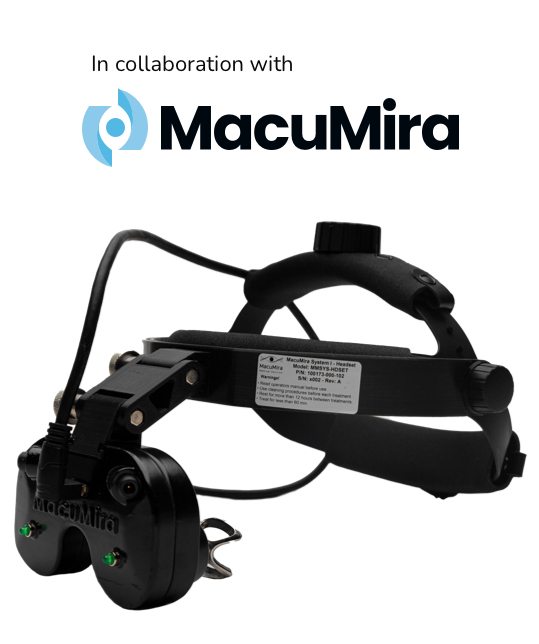After years of building a practice you’re proud of, thinking about the next chapter is a natural step. Selling your life’s work is a significant milestone that brings both excitement and a lot of questions. It’s a journey that requires careful thought, from knowing how to run a successful optometry practice to planning for its future so the legacy you built continues to thrive.
The process might seem complex, but you can navigate it with confidence. A successful sale hinges on strategic planning, a clear understanding of your practice’s value, and a well-managed transition process. With the right approach and a solid foundation for how to grow your optometry practice, you can transition smoothly into your next adventure while leaving your practice in capable hands.
Start with a Solid Plan and Timeline
A successful sale begins long before you list your practice. A clear plan helps you organize the process, set realistic expectations, and prepare for a smooth transition. This is the first step toward achieving your personal and financial goals.
How Far in Advance Should You Plan Your Exit?
Most advisors suggest you start planning a minimum of 2–5 years before you intend to sell. This timeframe gives you enough room to get your finances in order and make any operational improvements. It also allows you to handle legal or tax preparations without feeling rushed.
Assemble Your Team of Advisors
You don’t have to navigate this journey alone. A team of trusted professionals can provide invaluable support and guidance. There are many benefits of partnering with consultants and advisors, including:
- A lawyer
- An accountant or financial advisor
- A business broker or practice consultant

Determine the Value of Your Optometry Practice
Understanding what your practice is worth is a key part of the sales process. An independent valuation provides a clear and objective picture of its market value. This information is important for setting a fair price and negotiating with confidence.
A Look at Tangible and Intangible Assets
An appraiser will evaluate several parts of your business to determine its value. These fall into 2 main categories:
- Tangible assets: This includes your physical items like real estate, equipment, and furniture.
- Intangible assets: These are non-physical assets like your practice’s reputation, patient base, and established professional relationships.
The Role of Goodwill in Your Practice’s Value
Goodwill is often the largest and most significant intangible asset. It represents the value of your practice’s name and the trust you’ve built within your community. A strong reputation, built by using your brand image to create a buzz, directly contributes to a higher valuation.
Set a Realistic Price
Your asking price should reflect the fair market value determined by the appraisal. An unrealistic price can make it difficult to find a buyer. Your advisors can help you set a competitive price based on the valuation and current market conditions.
Prepare Your Practice for the Sale
Preparing your practice for a buyer’s review involves organizing documents and completing essential administrative tasks. Proper preparation can make the due diligence process much smoother for everyone involved.
Organize Your Financial and Legal Documents
A potential buyer will want to see detailed records. Make sure the following documents are up-to-date and easily accessible, and have a clear understanding of key metrics like your revenue per patient:
- Financial reports for the past 3–5 years
- Equipment and office leases
- Employment agreements
- Business and payroll tax returns
Plan for Your Taxes
The structure of your sale, whether it involves the sale of assets or shares, has significant tax implications. Consult with your tax advisor well in advance. This allows you to explore your options and plan a strategy that works for you.
Tidy Up Administrative Details
Don’t overlook the small but important administrative tasks. Review your open and closed files, update your patient management systems, and maintain well-documented business processes. A well-organized practice is more attractive to buyers.

Attract the Right Buyer for Your Practice
Finding a successor who is a good fit for your practice, your team, and your patients is just as important as the final sale price. The right buyer will carry on your legacy of exceptional patient care, so the community you serve continues to receive great attention.
Define Your Ideal Successor
Think about the qualities you want in a new owner. Consider their practice philosophy, business skills, and personal reputation. Deciding what matters most to you will help you identify the right candidates and is a key part of hiring for your optometry practice, even when finding a successor.
Create Your Confidential Information Memorandum
This document gives potential buyers key information about your practice. It typically includes a brief history, an overview of your services, and a summary of your financial operations. This is all done while protecting confidential patient information.
How Digital Marketing for Optometrists Can Help
A strong online presence can increase your practice’s visibility and value. An effective digital marketing strategy showcases your practice’s reputation and patient loyalty. This can appeal to modern buyers looking for a business with established digital roots.
Navigate the Sale and Transition Process
Once you find a potential buyer, the next steps involve negotiation, contracts, and planning the final hand-off. Flexibility and clear communication are key during this final stage. Both are important for a positive outcome.
Negotiate the Terms of the Sale
Most sales require some compromise from both parties. Be firm on your essential terms, but stay flexible on other points. You might consider offering to stay on as a consultant for a short period to help ease the transition for patients and staff by creating a positive workplace culture.
Protect Your Interests in the Sales Contract
Work with your lawyer to draft a final sales contract that protects your interests. The agreement should clearly define the roles and financial responsibilities of both the buyer and seller. It should also include clear terms for the transition.
Partner with Trusted Advisors for a Successful Sale
Selling your practice is a major milestone. With the right support and resources, you can make the process rewarding. It’s about setting yourself and your practice up for the next chapter.
Navigating the sale of a practice requires specialized knowledge. That’s why we’re proud to partner with Cleinman Performance Partners. They provide guidance tailored for eyecare professionals, helping you manage every step of the sales process with confidence.
At Marketing4ECPs, we can help prepare your practice’s digital presence for a successful sale. When you’re ready to explore what comes next, our combined experience is here to support you. Let’s connect you with the right resources to start your journey.
































